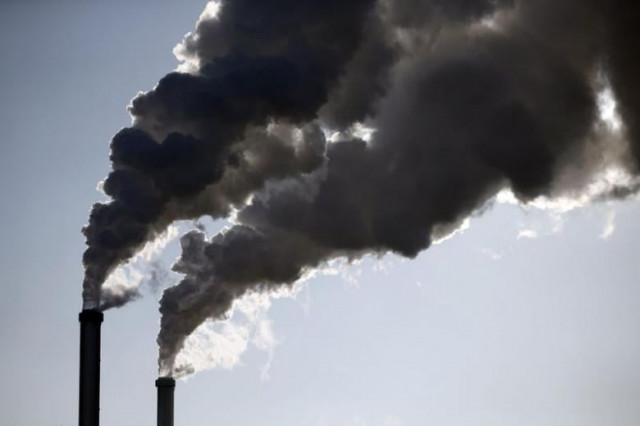Emissions of key greenhouse far higher than thought: study
Methane concentrations in the atmosphere more than doubled over the next 250 years before peaking in 1999

Water vapour billows from smokestacks at the incineration plant of Ivry-sur-Seine, near Paris, France. PHOTO: REUTERS
The new study is based on a database 100 times larger than previous ones, and uses a methodology that avoids debatable assumptions underlying earlier models.
The Paris climate summit
Within the figure, the methane leaked during the production and use of natural gas, oil and coal is 20 to 60 percent higher than previously thought, they reported in a study, published in the peer-reviewed journal Nature.
"Both emissions inventories and atmospheric studies have underestimated methane emissions from fossil fuel development," Stefan Schwietzke, a scientist at the US National Oceanic and Atmospheric Administration and lead author of the study, told AFP.
Emissions from industry and natural geological sources combined "are 60 to 110 percent greater than current estimates," he said.
The new findings may have serious implications for global efforts to cap global warming at "well under" two degree Celsius (3.6 degrees Fahrenheit), the target laid down in the landmark Paris Agreement that will enter into force next month, experts say.
Paris human chain gives emotional jolt to climate summit
"Emissions scenarios currently used for climate prediction need to be reassessed taking into account revised values for anthropogenic" -- or human-generated -- "methane emissions," said Grant Allen, a professor at the University of Manchester, commenting on the study.
Reaching the UN-backed temperature target, in other words, could be even more difficult than once thought. While not as abundant or long-lived as carbon dioxide (CO2), methane (CH4) is 28 times more efficient at trapping heat in Earth's atmosphere over a 100-year time span.
It is the second largest contributor to global warming after CO2, accounting for about a fifth of accumulated temperature increase since the beginning of the industrial revolution in the mid-18th century.
Methane concentrations in the atmosphere more than doubled over the next 250 years before mysteriously peaking in 1999. They remained constant until 2007. And then, after a brief hiatus, levels started to climb sharply again.
Climate change ‘significant and direct’ threat to U.S. military: reports
Experts disagree as to why, but whatever the cause fossil fuels are apparently not to blame, according to the study. "Methane emissions from fossil fuel development have been dramatically underestimated," Schwietzke told AFP.
"But they're not responsible for the increase in total methane emissions observed since 2007." Despite a dramatic jump in natural gas production during those years due to the controversial extraction method known as "fracking," related methane emissions remained constant because of reduced rates of leakage, he explained.



















COMMENTS
Comments are moderated and generally will be posted if they are on-topic and not abusive.
For more information, please see our Comments FAQ